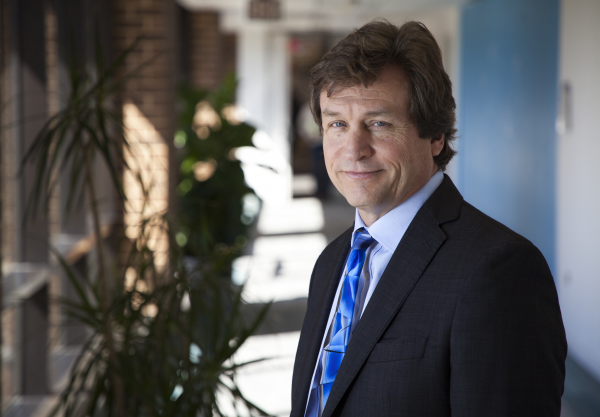Whole genome sequencing is already changing healthcare systems and treatments, according to Dr Howard Jacob, vice president and head of genomic research at AbbVie.
Dr Jacob spoke to HealthDispatch following a recent trip to Australia during which he discussed precision medicine with researchers and healthcare professionals.
He joined AbbVie earlier this year following a successful career in research. He was part of the first team to use genome sequencing to diagnose, treat and cure a patient.
Whole genome sequencing is the process for reading a person’s DNA.
"This technology is evolving rapidly," he said. "Mapping the first whole genome sequence took ten years and cost $1 billion. We can now do it in one month for $6,000. It will get quicker and cheaper. Maybe one day it will be mapped on the day we are born. Australia is heavily involved in researching ways the technology can improve patient outcomes, including at places like the Garvan.
"Whole genome sequencing provides an enormous amount of data," said Dr Jacob. "We can now literally drown in data about a person but it provides an incredibly important blueprint. It's a person's health blueprint that reveals the risk of certain diseases and importantly how they will respond to certain treatments."
Dr Jacob said his own blueprint identified 50 common medicines he cannot properly metabolise. "I changed my diet to reduce my chances of getting diabetes based on the results. The advantage of this is obvious but health systems will also need to change," he said.
He described the change as representing a "fundamental paradigm shift" in how people will be treated and in drug development.
"It will be incredibly disruptive, like the internet, and I'm sure it will be recognised as a technology that changed everything. We may even get to a point where, like the internet, we can't really imagine what life was like before whole genome sequencing.
"It will have an enormous impact on the diagnosis and treatment of disease. Health systems will need to evolve.
"Over time, health systems that are now reactive when it comes to medicines - with an incident followed by diagnosis and treatment - will become pro-active.
"A doctor might now ask for your family history when something has already occurred. This is really the 'poor man's' whole genome sequence. It involves a lot of memory and guesswork by the patient with all the obvious risk of gaps and error.
"We can now map three billion chemical units in the DNA from a patient's mother and another three billion from their father, giving us clarity on risk and the efficacy of certain treatments."
Dr Jacob said it will also fundamentally change how new treatments are developed. "There will be much more precision because we will better and fully understand diseases like Alzheimer's - not the single but multiple mechanisms that cause what is a terrible disease. It will accelerate the development of more effective treatments and reduce the risk of failures in the process. Reducing risk means a more efficient process and less cost. This has to be a good thing."
